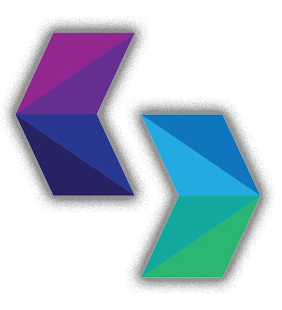Flutter vs Angular: A Comprehensive Comparison of Mobile and Web Development Frameworks
In the world of mobile app development, choosing the right framework can significantly impact the success of your projects. Two of the most popular frameworks for mobile and web development are Flutter and Angular. Flutter, developed by Google, and Angular, maintained by Google and a community of developers, both offer powerful features and benefits. In this blog, we will explore and compare these frameworks to help you make an informed decision for your next project.
Understanding Flutter
Flutter is an open-source UI software development kit (SDK) that allows developers to build natively compiled applications for mobile, web, and desktop from a single codebase. Its reactive framework makes it easy to create stunning user interfaces with its customizable widgets.
Features and Benefits
- Hot Reload: Flutter’s hot reload feature enables developers to instantly see changes in the app during the development process, making it efficient and time-saving.
- Widget Library: Flutter provides an extensive widget library that offers a wide range of pre-designed UI components, facilitating faster development.
- Platform Independence: Flutter’s codebase is platform-independent, meaning developers can use the same code for both Android and iOS apps.
Use Cases
- Cross-platform Mobile Apps: Flutter is an excellent choice for building cross-platform mobile applications with a native look and feel.
- Web Apps: With Flutter for web, developers can create responsive and interactive web applications.
- Desktop Apps: Flutter’s support for desktop applications allows developers to target multiple platforms from a single codebase.
// Flutter Example
import 'package:flutter/material.dart';
void main() {
runApp(MyApp());
}
class MyApp extends StatelessWidget {
@override
Widget build(BuildContext context) {
return MaterialApp(
home: Scaffold(
appBar: AppBar(
title: Text('Flutter Example'),
),
body: Center(
child: Text('Hello, Flutter!'),
),
),
);
}
}
Exploring Angular
Angular is a popular platform for building web applications, and it offers the capabilities to develop progressive web apps and native mobile apps through tools like Ionic.
Features and Benefits
- Two-way Data Binding: Angular’s two-way data binding simplifies the synchronization between model and view, enhancing the development process.
- Dependency Injection: Angular’s dependency injection system allows for better code organization and testability.
- Directives: Angular’s directives enable developers to create custom HTML elements and attributes to extend the functionality of the web app.
Use Cases
- Single-page Applications (SPAs): Angular is well-suited for building SPAs that provide a seamless user experience.
- Enterprise Applications: Angular’s modular and scalable architecture makes it an excellent choice for building large-scale enterprise applications.
// Angular Example
import { Component } from '@angular/core';
@Component({
selector: 'app-root',
template: `
<h1>Hello, Angular!</h1>
`,
})
export class AppComponent {}
A Comparative Analysis
Now, let’s dive into a detailed comparison of Flutter and Angular based on various aspects.
Performance and Speed
Both Flutter and Angular offer good performance, but they achieve it differently. Flutter uses its native engine, “Skia,” to render graphics, resulting in smooth animations and a fast UI. On the other hand, Angular leverages browser rendering engines, which may not be as performant as Flutter’s native approach.
Learning Curve
Flutter’s reactive and widget-based architecture can be easier for developers with prior experience in declarative UI frameworks. On the other hand, Angular’s extensive ecosystem and use of TypeScript may have a steeper learning curve, especially for developers new to TypeScript.
Community and Support
Both frameworks have strong communities backing them, with active forums and resources. Flutter’s community is growing rapidly, supported by Google’s efforts, while Angular benefits from Google’s constant development and maintenance.
UI Components and Customization
Flutter’s rich widget library provides a wide range of customizable components, making it easier to create unique and visually appealing interfaces. Angular, being primarily a web framework, offers robust support for creating responsive web designs.
Integration and Ecosystem
Flutter’s integration with Firebase and other Google services enhances its capabilities for building mobile apps with advanced functionalities. Angular, on the other hand, integrates seamlessly with the broader JavaScript ecosystem, allowing access to various libraries and tools.
Testing Capabilities
Both frameworks support testing, but Flutter’s widget testing allows developers to test UI components efficiently, making it a strong contender for UI-focused testing.
Choosing the Right Framework
When choosing between Flutter and Angular, consider the following factors:
- Project Requirements: If you need to develop both mobile and web applications, Flutter might be a better fit due to its cross-platform capabilities.
- Team Skillset: Evaluate your team’s expertise. If your team is proficient in web development and TypeScript, Angular could be a natural choice.
- Performance Needs: Consider the performance requirements of your application. If smooth animations and high performance are essential, Flutter may be the way to go.
- Time-to-Market: Flutter’s hot reload feature can speed up the development process, making it ideal for projects with tight deadlines.
- Community and Support: Assess the community support and the availability of resources for each framework.
Conclusion
In conclusion, both Flutter and Angular are powerful frameworks with their own strengths and use cases. Flutter is an excellent choice for cross-platform mobile app development with its rich UI components and hot reload feature. On the other hand, Angular shines in building robust web applications with its extensive ecosystem and two-way data binding.
In the end, the decision boils down to your specific project requirements and your team’s expertise. Whichever framework you choose, both Flutter and Angular can empower your team to create outstanding applications and deliver exceptional user experiences.
FAQs
- Is Flutter or Angular better for mobile app development? Flutter is better suited for mobile app development, especially when you need to target both Android and iOS platforms with a single codebase.
- Can I use Flutter for web development? Yes, Flutter has support for web development, allowing you to build responsive and interactive web applications.


